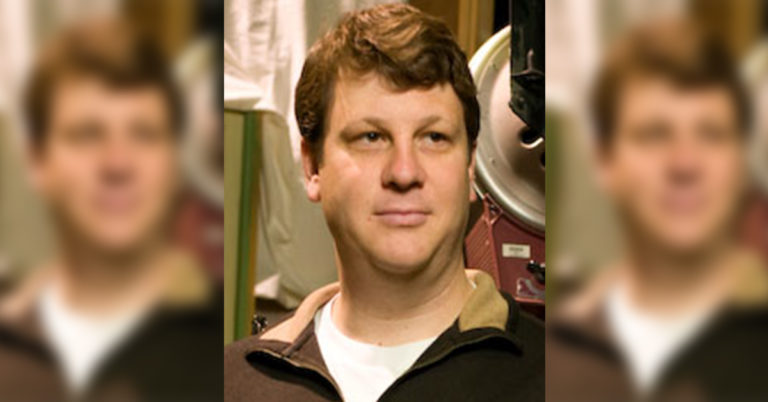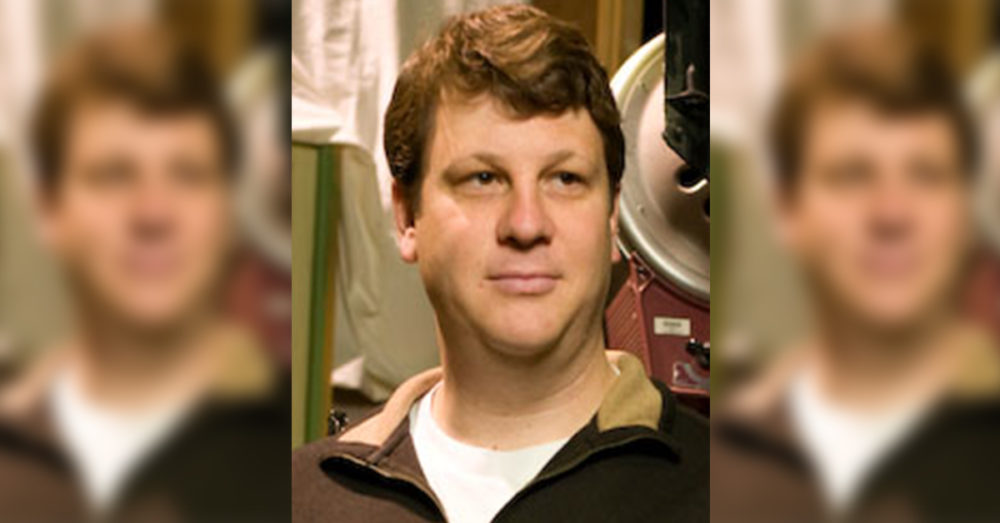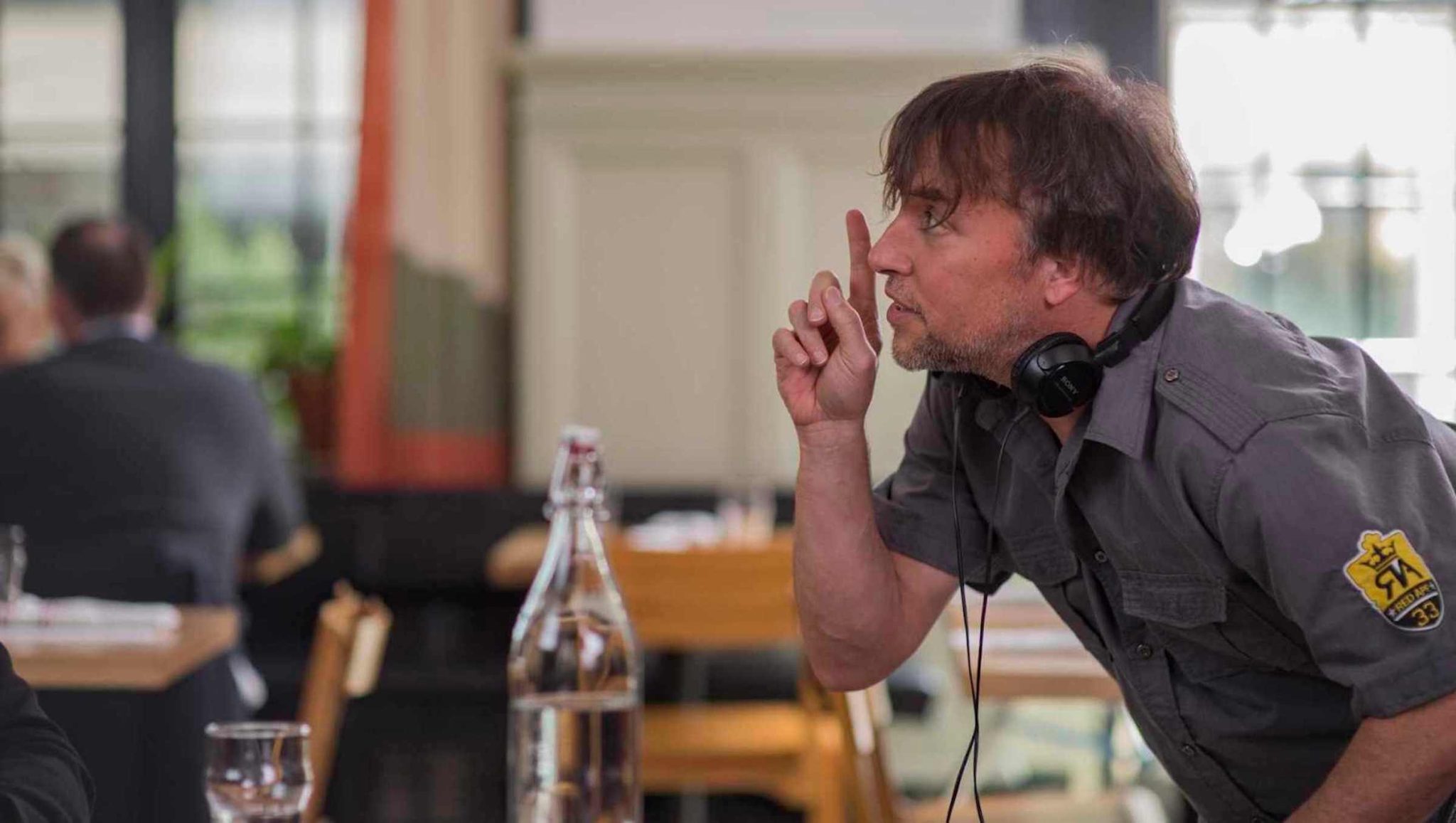7 Takeaways On Writing For Television With Showrunner Craig Turk

Craig Turk boasts an impressive writing resume, working on shows like Law & Order, Private Practice, and The Good Wife, which he helped run. Recently, he joined host Aaron Tracy by phone on the Yale Podcast Network’s, To Live and Dialogue in LA.
Turk delved into a variety of topics, discussing the highs and lows of writing for TV, what it’s like to be in a writer's room with a legend like David E. Kelley, and the mechanics of creativity.
On writing for network versus cable/streaming:
Turk has spent his entire career writing for broadcast television. Even today when it seems like the place to be is on cable and streaming, Turk continues to write for broadcast. When asked if he is interested in writing for cable or streaming or just prefers broadcast, he says simply, “Both are true.”
He doesn’t specifically shun cable and does have an interest in producing shows for places other than broadcast. But network TV is just the way it has worked out for him — and he’s happy with the way it is. “I’ve been really satisfied with the broadcast shows that I’ve done,” Turk says. “Network TV still allows you sort of the biggest platform and the most eyeballs — it’s been great.” It also helps that Turk has seemed to have found a home at CBS, where most of the shows he has written for have aired.
On getting into the business:
When Turk was first starting out, things were a bit different than they are today. “First thing I wrote and sold was a [spec] Law & Order script, back in the days when people would have a sample of their television writing.” He continues, “Nowadays, people like to write pilots and they like to have something unique and they want to hear your voice. Back then, the drill was, if you wanted to be a television writer, you would spec an existing show.”
With a laugh, Turk hints that it’s probably a good thing that the ways have changed. Writing a pilot rather than a spec is the better route to take because, as Turk elaborates, specs weren’t always the most warmly received by the writer’s room for the show you may have been spec-ing. “Once you’re on a show, it’s hard enough for the staff writers to figure out exactly what the voice of this show is,” Turk says. “You struggle to get the staff to consistently write the show well, so for an outsider to presume that they know the show well is really challenging.” So long story short, keep working on that pilot.
On working with David E. Kelley (Big Little Lies, Ally McBeal):
Turk admits that—growing up—TV writing wasn’t what he initially had his sights set on. He had other jobs in mind and ended up going to law school, working in politics and on campaigns. “So when I came to Hollywood,” he says, “I probably didn’t know enough to be excited or to know who I really wanted to meet — but I knew [of] David Kelley, right, he’s sort of legendary.”
Turk hit it off with Kelley and found himself working for him in the writer’s room of Boston Legal. It was an experience, unlike any other and one that he’ll never forget. Kelley lives in Northern California and would come down to the writer’s room in LA occasionally, so typically, Turk and the other writers would send scripts up to him and wait for feedback. “You’d send it up there and a few days later … [he might have said] “it’s phenomenal.” Much more often, you would write it, send it up there and David would jump into it and it would come back with his name and your name on it and it would be miles and miles better than what you had written.” Rather than be dismayed, Turk says that process was an incredible learning experience for everyone involved.
Turk also found inspiration from Kelley’s writing process. He talks about how you hear stories when you enter the business about various big names and you never know what the truth is when it comes to tales of this nature — some are more tall tale than anything else. But when it came to Kelley, what Turk heard about him was true. “I always heard [that he could] sit down and just write a television episode in a day or day and a half.” Turk reveals that this is true. With unmistakable awe in his voice, Turk details Kelley’s process. “He sits down… with a yellow pad and… just writes it [long-hand]. For everyone else in the world who sits in front of their computer and revises and cuts and pastes and is on the internet, David literally just sits down, writes this thing long-hand and it comes out phenomenal.” If that’s not a lesson in dedication, it’s difficult to say what is.
On writing for specific actors:
If one is lucky enough to work on a show that has been picked up or has been on the air for some time, the actors you get to know and love play a big role in how each episode is written. In Turk’s case, he recalls writing for James Spader during his Boston Legal days and absolutely loving it. He says Spader was game for anything and incredibly fun to write for.
“Typically, you’re never writing a speech that’s more than 8 or 10 or 12 lines long — and usually much shorter than that,” Turks says. But with Spader, “you could write two pages, three pages [of dialogue].” Turk remembers writing something for Spader that was almost eight pages long. “Completely unheard of,” Turk admits, “but James would commit to these things so fully. And he might call you ten or twelve times in a day to go over the finest details, which is challenging for a writer, but he was just unbelievably wonderful on set when you got to the day. All that hard work was always worth it.”
On using your personal background to inform your writing:
Turk doesn’t believe his legal background is what led him to write courtroom dramas but he concedes that it certainly helps in the writing process. When he was writing for the medical show Private Practice, it was a bit of a learning curve. “We used to say on Private Practice, “Medical-medical.” We would literally write scripts and for those chunks of dialogue write, 'medical-medical,' and we’d call doctors who’d help us fill [those chunks] in.” In comparison, when writing for Boston Legal and The Good Wife, the process came a bit more naturally.
But more than anything, he just personally finds legal shows inherently dramatic and compelling. “I think law exists in sort of a really interesting dimension,” Turk says. “There’s something to it, you’re always learning something about the law and how it functions that’s kind of interesting, but I do also think people largely understand the rhythms of law are and it’s a way of getting at, really, any issue.” Turk continues, “Maybe it’s because I have that appreciation and having gone to law school and having practiced, but I think I’ve always loved law shows because it feels like kind of the largest, blankest canvas.”
On dealing with the fallout of a rejected pilot:
Turk recently wrote a pilot and went through the whole process of creating the world with a group of people, casting it, shooting it, editing it and putting it all together, only to get the call that it wouldn’t be picked up for series. It’s unfortunate but all part of the business.
Turk details, “You write a pilot and you really want to get it shot, you want to make this thing… you’re so heavily invested because… you hire one hundred and fifty or two hundred people and it’s people you really care about and believe in and want to work with. And then there’s this day… you’re hoping to get this call, ‘This is great’ and [instead] they go, ‘Sorry…’” Turk admits that this is, obviously, an incredible blow. “It’s really hard and it takes you awhile to recover. First, you’re a bit dazed and then you try to process it and try to figure out why and sometimes there’s a reason and sometimes there isn’t…”
On creativity and when he feels the most creatively satisfied:
Writers very much love to hear how other writers write. We gain inspiration and sometimes a much-needed kick in the butt when we hear how other writers work and what their creative process is like. Turk, being in a number of different writing rooms for his entire career, has experienced this first hand and indeed finds the most inspiration from his time in the room with his fellow scribes. “I like being in the writer’s room with other writers and figuring out a story to tell,” he says. “There’s some spark for an idea and you go in, really with just a small kernel… and you can explode it into something really interesting and really exciting… The time in the writer’s room is the most broadly creative and I really like that.”
But he acknowledges that there are two sides to this. For writers who may prefer to lock themselves away, Turk doesn’t take that solitude for granted. “I became a writer because I like being in my “writing hole” with my computer and sitting down and making the words work and that’s a different kind of satisfaction.”
Listen to the podcast below.
 Travis Maiuro previously taught the craft of writing while pursuing his MFA in Screenwriting from the University of Texas at Austin. He also writes about movies here.
Travis Maiuro previously taught the craft of writing while pursuing his MFA in Screenwriting from the University of Texas at Austin. He also writes about movies here.
Photo credit: Deadline
For all the latest ScreenCraft news and updates, follow us on Twitter, Facebook, and Instagram.
Get Our Screenwriting Newsletter!
Get weekly writing inspiration delivered to your inbox - including industry news, popular articles, and more!



























